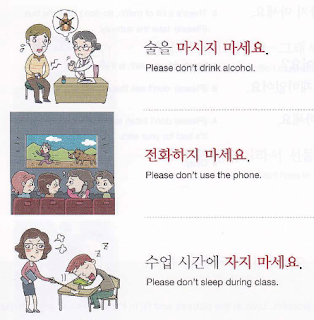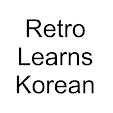If you have ever taken a look at my fluency path you may notice that the focus on grammar quickly dwindles after the beginning stages. Many education institutions tend to put a focus on grammar instruction and focus on using that information for output. This partly contributes to a lot of students feeling like they make no progress due to not being able to spit out constructed sentences on the fly or people telling them they say things weirdly. This is even more evident in languages that are distant because ideas are expressed in completely different ways and words rarely overlap in exact us
In institutions and self teaching the focus has to be shifted from learning grammar to, output to using grammar for understanding content. Using this mindset we can take the stress off of trying to remember 100 grammar points by brute force and instead acquire them from content we consume making it much easier to output by way of copying native speakers instead of making up language by ourselves. There are many times where the meaning of grammar makes more sense when you pay attention to the intonation and tone in which it is said.
 |
| Useless grammar tests |
Early Stages
By spending time with grammar in the early stages and getting lots of input we can make the process of understanding grammar much quicker. simple sentences and audio will give you a much better idea of how to form sentences than toiling over an explanation on how to use all the different tenses and forms.
The best thing you can do is it quickly go over a grammar book to make your self aware of various forms and grammar structures while reading the examples sentences given. Doing this while spending a lot of time on input activities such as reading, watching or listening you can gain a much better understanding of the forms when they show up in simple sentences.
It can often be handy to find and read through multiple grammar resources as sometimes the description of the grammar form will not resonate with you. As a learner the process should remain as stress free as possible, nobody understands every grammar point first time reading a description or even example sentences. It's not uncommon to be completely lost for a while over a certain piece of grammar You just need to wait until that one sentence shows up that helps you remember the meaning.
 |
| Simple Sentences with pictures for easy understanding |
Beyond the books
The more familiar you get with the language the easier it will be to remember grammar points. Luckily grammar is one of the smaller portions of a language there are only around 100 or so grammar constructs while you will need to know 20 thousand or so words to feel comfortable in the language. This means we can abandon focused grammar study relatively early into learning the process.
While immersing in content you may find things that were not covered in your books. Luckily in the age of the internet many other people have posted questions or even guides about those specific grammar points which can easily be found with a quick query on your search engine of choice. Even if you're not sure if it is grammar you may get a faint inkling and a quick search will usually confirm whether that is the case.
 |
| If you're unsure just search |
Do we even need to know grammar?
You may notice that in your native language you don't know how grammar works or even explain it you just instinctively know what it feels like and how it should be used. You may have also noticed children don't spend any time reading grammar books or taking grammar instruction yet they can string together sentences, while poorly at first, solely based off of the language they hear around them. I just barely knew what a noun, adjective and verbs were before I started learning a language, never mind all the grammar vocabulary that you can get caught up in.
As adults however we have the ability to propel our understanding of a language into the upper tiers with just a few hours invested into reading some explanations. Children are pretty bad examples for this as they basically spend their lives surrounding by the language and having no reference or knowledge of higher concepts.
However you will notice the more time you spend inputting content as opposed to inputting grammar forms the more natural your thinking and speech will become. This will take a long time regardless of the language you are learning but it is the most effective way to learn grammar and vocabulary.
I will leave a link to a famous video on Stephen Krashen's input hypothesis for those that would like further information on the subject of language acquisition.
For related posts please check out these pages:
- TTMIK Grammar points list
- Hanja(word builder) lessons list
- Talk To Me In Korean Book Review and Thoughts on the Curriculum
- The Role of Grammar Study in Language Learning
- The Monolingual Transition and How to Approach it
- Realistically How Long Does it Take to Learn a Language?
- Billy Go's Korean Made Simple 1 Grammar Book Review
- Talk to Me in Korean Advanced Idiomatic Expressions Reference List
- Korean Grammar in Use Advanced - Grammar Points Ranked

No comments:
Post a Comment
Share your thoughts on this topic